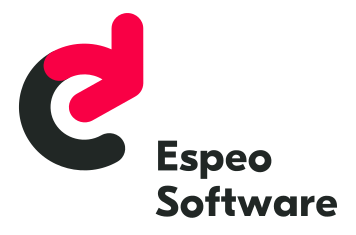Blockchain technology shows promise in several key sectors. While it’s far from a cure-all, some key aspects could aid businesses in their process improvement strategies. Cutting waste and inefficiencies from business processes remains a challenge — one that blockchain technology could address. Below are some cost reduction examples blockchain technology could work to improve.
Sectors from real estate to charitable giving have begun to implement blockchain technology to innovate and compete in a fast-changing market. One field which could greatly benefit from blockchain is B2B. Process improvement and cost reduction brought on by the technology could increase profits and boost the industry to new heights.
B2B process improvement strategies
Business-to-business companies often deal with unnecessary complications. The behemoths of the industry such as Alibaba still use antiquated technology to handle their processes. Wide adoption of blockchain technology in the industry could improve processes and reduce costs for enterprises. As global commerce increases, the complexity and number of actors increases.
Businesses can benefit from implementing innovative solutions to increase their competitive advantage. One of many process improvement strategies is to save time and streamline international shipments. Some other cost reduction examples include automation and supply chain improvements. When a buyer orders a product, the transaction can take weeks to finalize. The usual intermediaries slow the process. Lawyers, red tape, logistics agents, and banks can delay a transaction unnecessarily.
Many B2B companies still use electronic data interchange technology or EDI (Electronic Data Interchange). According to a 2015 eft survey, B2B business owners and stakeholders believe that EDI is outdated and should be replaced by better technology. Here are a few process improvement strategies blockchain could address.
Eliminate expensive third parties
Smart contracts enable sellers and buyers to scrap expensive third parties and automate business processes. Blockchain smart contracts are transparent features that automatically bind all the parties involved. The smart contract is a set of cryptographic codes which only verified participants can access.
Once the data the participants give correlates with the existing data, it automatically executes. This is one of the biggest cost reduction examples as I’ll mention below. No one can alter the data once it’s on the chain. This makes it immutable, and since blockchain is a distributed ledger, the smart contract has no single point of failure. Even if one node goes down, the system can still operate. 90 percent of B2B stakeholders have realized the benefits of smart contracts and there’s no going back.
Automate data processing
Blockchain processes data in real-time, making it one of the best process improvement strategies for B2B companies. For instance, sellers will be able to access data on their e-commerce portal and see as the numbers add up. This will help sellers make decisions based on the information instead of waiting for weeks before calculating the data before making decisions. Blockchain will reduce the time lag, therefore, sellers will be able to carry out other tasks without delay.
Improve supply chain
Aside from the other process improvement strategies, smart contracts will provide for B2B companies another important benefit of blockchain is supply chain enhancement. Blockchains are a chain of distributed ledgers that process data autonomously. This means that for B2B, sellers can depend on blockchain technology to handle unstructured data. Where traditional supply chain fails in processing data efficiently, blockchain will thrive without error.
Increase transparency among B2B partners
Blockchains can record and store information in a supply chain. All the parties involved can access the data making it easier to exchange documents between business partners.
One of the drags on the global economy is the fact that companies cannot fully trust one another. Blockchain technology sets up a trustless environment improving relationships between enterprises and potentially growing the global economy. Fewer fraudulent transactions or non-payment will increase profit and serve as one more of the powerful cost reduction examples blockchain technology can offer the B2B firms. Blockchain ensures shared visibility like never before.
Adjust to a changing market
Antiquated EDI technology doesn’t do well with big data supply chains. Due to changing market realities and consumer habits, B2B companies will have to adjust their processes. About half of B2B buyers are millennials and as such B2B companies expecting the manual process of placing fax orders, and handling paper contracts may be asking for too much from millennials. Current consumers want to place orders via B2B e-commerce portals and have their products delivered to them. Blockchain could replace EDI as the logistics technology of choice.
While blockchain seems like the most suitable technology to replace EDI, some remain skeptical. Many pundits predict that blockchain will augment EDI and not replace it. Blockchain can aid B2B companies in their process improvement strategies.
Cost reduction examples
As I mentioned above, blockchain tech can play a role in process improvement strategies for B2B companies. Eliminating intermediaries, supply chain automation, and an improved supply chain are also good cost reduction examples. But how can blockchain technology actually do this?
Reducing fees
One intermediary is the bank. Once there’s no bank involved, sellers will be able to save the percentage that would have gone to the banks involved in payments. According to Accenture, and McLagan, blockchain will save money for B2B partners by reducing or completely eliminating financial institutions fees for B2B transactions. B2B partners can also save the money that would have gone to lawyers. Cutting intermediaries also makes transactions fast, once the seller makes a payment, the buyer receives it immediately.
Automated supply chain
When data processing on supply chains becomes more accurate and immediate, one should expect that it will reduce expenses for B2B sellers. With greater automation, fewer employees are necessary. Human error can also drive up costs Why? Well, because for every human error in data analysis, the business owner has to correct it or pay for it. For instance, if a buyer places an order of 50 million copies of a product and during the logistics and product delivery there’s an error such that they send more than 50 million copies to the buyer, the seller will eventually pay for it.
But think of a scenario where products are labeled on the seller’s supply chain using blockchain technology, and the physical products must correspond to the labeled products on the supply chain then one can assume that it’ll be almost impossible to make an error.
Blockchain integration
The time has come for B2B companies to scale up and adopt blockchain technology. Many big brands such as Amazon, IBM, Alibaba, are pouring money into blockchain development. As of last year, 57 percent of B2B leaders noted that they need to integrate e-commerce with backend technology that will make B2B business processes seamless. While blockchain technology still appears too complex for B2B sellers, some blockchain experts have developed blockchain-as-a-Service for business owners, so that B2B executives can easily integrate blockchain API into their business.
Why wait when you can develop your B2B company on blockchain? As a startup, developing your B2B brand on blockchain from the beginning may factor into your process improvement strategy. Although there are not many B2B brands that are already using blockchain technology, it will be much worse to be miss out on a competitive advantage as more B2B companies.

